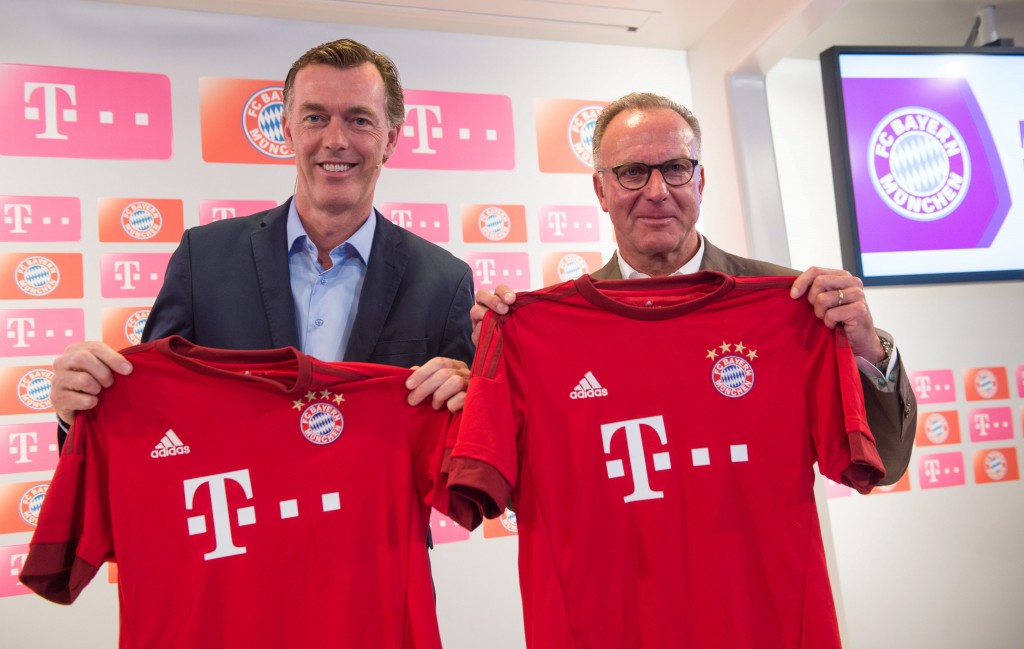The Hard Tackle takes a closer look at Bayern Munich’s transfer policy that is destroying the Bundesliga.
A little more than a week ago, Frank Briel, chief executive officer at TSG Hoffenheim, revealed the club’s annual financial figures. During his announcement, he also brought up Bayern Munich’s transfer policy, calling out their alleged business of “poaching talents”.
“It is worth discussing, at least from a solidarity point of view, that Bayern are now actively involved in the talent-poaching business with a turnover of three-quarters of a billion euros.”
While Briel admitted Bayern’s transfer tactics were probably strategically smart from their side, he said it was a real problem for clubs like Hoffenheim. “It hurts us because we do all the work at the academy for them,” he added.
Briel’s comments came in the aftermath of Bayern Munich signing two of Hoffenheim’s top talents in Mamin Sanyang and Armindo Sieb, earlier this year. But, these words reflected a rather evil nature of the Bavarians’ transfer policy that has been hurting the Bundesliga for quite some now.
How Bayern Munich Efficiently Dictate Their Transfer Strategy
Over the past 15 years, Bayern Munich have poached dozens of star players from rivals Bundesliga clubs. While the club deserves credit for honing talents like Joshua Kimmich, David Alaba and Niklas Sule among many others, poaching established individuals like Manuel Neuer, Robert Lewandowski and Mats Hummels hasn’t gone down all too well with the critics.
It is, however, a common practice in almost any football league. In fact, even Borussia Dortmund are starting to poach stars like Julian Brandt, Nico Schulz and Thorgan Hazard in recent years.
Bayern Munich can do it more efficiently and have more leverage because of their financial firepower. They are one of the biggest clubs in European football, boasting a significantly bigger fanbase and higher global appeal than any other Bundesliga outfit.
The apparent financial disparity in the Bundesliga between a small club and a big club is much more than its English counterpart. It is because of the fact that the broadcast revenue is not distributed equally among all the clubs in Germany but on the basis of performances.
It makes the job easier for Bayern Munich to sustain their financial resources, which is used to attract German players, who, unlike their French counterpart, generally prefer to play football in their home country rather than moving abroad.
Bayern Munich Are Damaging The Bundesliga
Bayern Munich’s hierarchy, including figures like Karl Heinz-Rummenigge, are quite outspoken regarding their sheer determination of preserving Germany’s power in European football and helping the Bundesliga.
“Our priority will certainly be Germany and Bavaria. Our future talented players will much rather come from Rosenheim than Rio,” Rummenigge said during an interview back in 2016. In the same interview, he also criticized English clubs for poaching “kids”, claiming he’d have “moral reservations” before doing such things.
However, in the same year, according to a report from a German news outlet, SportBild, Bayern Munich poached Augsburg’s youth coach and five of his most talented players when the club’s Under-13 side received a 7-1 drubbing at the hands of Augsburg Under-13.
In recent years, Bayern Munich have only sped up their process of buying talented young academy players and have significantly reinforced their youth department.
That is why figures like Hoffenheim’s Frank Briel are now starting to speak out against the Bavarians, especially considering the fact that most Bundesliga clubs lack the financial strength to sustain a level of success for a long period of time.
As a result, they often rely on their youth players instead of using the market. Clubs like SC Freiburg, FC Augsburg and 1.FC Koln are perfect examples, having managed to preserve their status in the top flight despite losing some of their best players in recent years.
But, with Bayern Munich now ramping up their youth development, smaller clubs are finding it more and more difficult to create a proper youth structure, with the use of those talented players. Jann-Fiete Arp, for one, is a fine example.
Can Bayern Munich Be Stopped?
Questions certainly need to be raised regarding Bayern Munich’s transfer policy in the Bundesliga. But at the same time, they deserve credit for having an excellent management structure that has used their resources well to preserve their status as one of the finest clubs in Europe.
Given the current climate in the Bundesliga, especially with the broadcast revenue not showing any improvement, the best option is to take up the Premier League route by distributing the funds equally among 18 clubs.
Good Morning from #Germany, home of world’s 3rd-highest revenue-generating football league. Bundesliga clubs achieved impressive rev growth of €177m (6%) for 2018/19 season, due to uplift in broadcast (+19%), Deloitte says. Germany is also 3rd in terms of profitability w/€394m. pic.twitter.com/G6EmYkC4to
— Holger Zschaepitz (@Schuldensuehner) June 14, 2020
It is, however, an unlikely phenomenon as the top two clubs do indeed create a large chunk of Bundesliga’s global viewership. And so, unfortunately, Bayern’s sheer dominance in the Bundesliga isn’t going to fade anytime soon.
Just to put things into perspective, the record champions have three times more revenue than Borussia Monchengladbach – a team who finished fourth during the 2019/20 Bundesliga campaign.
There is, however, room for hope, with clubs like RB Leipzig, Borussia Dortmund and Bayer Leverkusen finally starting to find a good structure. Dortmund, for example, have already come close to sealing the title in the past couple of years while Hertha Berlin have shown a lot of intent in the market.
A lot could depend on how these clubs prosper in the coming years as the Bundesliga finally looks to break Bayern Munich’s hegemony and the worm that consumes German football, which is only going to heal Bundesliga itself.
